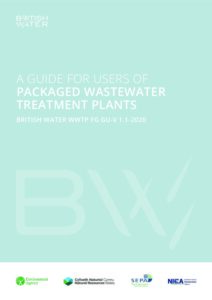
Sustainable Laundry Habits with a Sewage Treatment Plant
Tips for Using Washing and Dishwasher Detergents with a Sewage Treatment Plant
As temperatures rise and sunny days become more frequent, the temptation to designate a ‘washing day’ and hang laundry outside is hard to resist. While this tradition can seem economical and eco-friendly, it’s essential to consider its impact on our sewage treatment systems. Consistency in detergent use plays a crucial role in ensuring these systems operate efficiently.
Sewage treatment plants rely on a delicate balance of bacteria to break down waste effectively. When the composition of sewage fluctuates significantly, it can disrupt this balance, leading to less efficient treatment processes. Therefore, it’s imperative to maintain consistency in the products we use, particularly washing and dishwasher detergents.
Here are some key practices to keep in mind:
Consistent Detergent Use: Using the same washing and dishwasher detergents consistently helps the bacteria in the sewage treatment system work more efficiently. When the products in sewage don’t vary widely, bacteria can adapt to remove a wide range of substances, leading to a more stable and effective treatment process.
Liquid Cleaners: Opt for liquid cleaners for both clothes washing and dishwashers. Liquid detergents allow for better dosing control and quicker dispersion, ensuring they ‘get to work’ rapidly and efficiently.
Spread Out Washing and Cleaning: Rather than designating a single ‘washing day,’ spread out clothes washing and cleaning tasks throughout the week. This practice prevents overloading the system with wastewater at any one time, reducing the risk of overwhelming the treatment process.
Consider Water Hardness: Hard water, rich in calcium and other minerals, can reduce the effectiveness of soap and detergents. Determine the hardness of your water supply and adjust detergent usage accordingly. Most fabric washing products provide guidance based on water hardness levels.
Follow Manufacturer Recommendations: Read the instructions for use on detergent packaging and follow the recommended dosage for water hardness. Using too much detergent can inhibit biological treatment and reduce the effectiveness of the treatment system.
Optimise Dishwasher Usage: Use liquid dishwasher detergents rather than powders or tablets, as they offer more precise dosing control. Ensure the salt dispenser in your dishwasher is topped up to maintain water softness, enhancing detergent efficiency.
Avoid Rinsing Dishes: Some dishwasher manufacturers advise against pre-rinsing dishes under hot water before loading them into the dishwasher. Modern dishwashers and detergents are highly effective, so pre-rinsing is unnecessary and wasteful.
By adopting these practices, we can contribute to the efficient operation of sewage treatment systems while maintaining clean and hygienic households.
For more detailed guidance on detergent use and water hardness, refer to British Water’s Guide for Users of Packaged Wastewater Treatment Plants.
Contact Us
For further assistance and advice, contact us on 01255 853890 | enquiries@mantair.com – or by filling out the form on our contact us page.




